|
Kia ora koutou katoa. Greetings everybody. The Dunedin/Ōtepoti Vegan Society (DŌVeS) would like to wish everyone a very happy World Vegan Day today! And of course today is also the beginning of World Vegan Month. ❤
World Vegan Day was first established in 1994 by Louise Wallis, who was then the chairperson of ‘The Vegan Society’ in the UK. (The original Vegan Society.) The celebration was instigated to commemorate the 50th anniversary of the founding of the organisation, and the coining of the terms ‘Vegan’ and ‘Veganism’. Speaking in 2011, Wallis said: “We knew the Society had been founded in November 1944 but didn't know the exact date, so I decided to go for 1 November, partly because I liked the idea of this date coinciding with Samhain/Halloween and the Day of the Dead - traditional times for feasting and celebration, both apt and auspicious.” This year we celebrate 77 years of the international vegan movement. In the past few years, veganism has finally begun to be accepted by huge parts of mainstream society, as a legitimate movement with something valuable and important to offer the world. DŌVeS are also very proud to be celebrating our 6th birthday. Our organisation was officially launched on World Vegan Day 2015. (You can read some more about the history of veganism here.) Some Thoughts on Veganism… It is our hope that everyone understands by now that veganism in not a diet, and is much more than merely a ‘personal lifestyle choice’. While being vegan does of course involve food choices and other personal lifestyle decisions, veganism is a social justice movement. Being vegan is about taking a moral and ethical stance on an important social issue. That is, our relationship with, and our treatment of, the other conscious sentient beings we share this planet with. The non-human animals. Veganism is inextricably connected to the global Animal Rights movement. Veganism is about putting respect for animals into practice. The animal rights movement is the social and political extension of veganism. The ultimate, long term end goal of the both movements is to create a vegan world. Or something pretty close to it. Vegans believe that animals matter. All animals. Not just some. And we believe they really matter. That their lives are truly important, and that they deserve real and meaningful respect. Not half-hearted tokenism, or mere so-called ‘welfare improvements’. We take animals’ lives seriously, and do our very best to avoid causing harm to them. And the activists among us are trying to get other people to do the same. It is worth pausing a moment here, to put to rest a very outdated, yet stubbornly persistent myth. The myth that ‘animal foods’ are necessary for health. It is disturbing that in this day and age, so many people still believe this redundant, soundly dis-proven fallacy. It is now well understood and scientifically accepted that a well-balanced vegan/plant-based diet is very healthy and appropriate for all stages of the life cycle. This includes pregnancy, lactation, infancy, childhood, for older adults, and even for athletes. This position is endorsed by, among others, the American Academy of Nutrition and Dietetics, the Australian National Health and Medical Research Council, the British Dietetic Association, Dietitians of Canada, and the New Zealand Ministry of Health. We acknowledge that some forms of harm to animals are very difficult, or even impossible to avoid. But being vegan was never about being perfect. It’s about doing our best. The official definition of veganism, from The Vegan Society in the UK is: “Veganism is a philosophy and way of living which seeks to exclude – as far as is possible and practicable – all forms of exploitation of, and cruelty to, animals for food, clothing or any other purpose; and by extension, promotes the development and use of animal-free alternatives for the benefit of animals, humans and the environment. In dietary terms it denotes the practice of dispensing with all products derived wholly or partly from animals.” “…as far as is possible and practicable…” Does this mean vegans believe non-humans are 100% morally equal to humans? It depends which vegan you ask. Some will say, “Yes. Absolutely.” Others will say no, but that other animals should be considered close to equal. Others might disagree with even that position, but they still believe that animals are important. One thing all vegans agree on, is that an animal’s life is more important than a few moments of taste enjoyment, a pair of leather shoes, a few moments of entertainment, or any other form of exploitation that causes unnecessary suffering and/or death to an innocent animal. We even believe that ‘culture’, customs, or traditions – as important as those things are to all of us – are still not strong enough reasons to take the life of someone who does not want to die, and who does not need to die. Culture and traditions have always changed and evolved, and they always will. And make no mistake. Every animal is someone. Not something. A unique individual, with a personality; a persona; personhood. They are conscious and sentient. They have sophisticated thought processes, complex emotions, and important and meaningful social relationships. They have language and communicate. They remember the past and project into the future. They feel happiness, joy, excitement, pleasure, contentment, and satisfaction. They also experience suffering, sadness, loneliness, boredom, frustration, fear, and pain. And all too often they have these negative experiences at the hands of humans. They have friendships and family bonds. They love and they grieve. They have a rich, complex internal life, and given the chance they can live a rich and complex external life. They want to live and to enjoy their lives. No animal ever wants to suffer or die. They are not like plants, who merely respond to stimuli, albeit in amazingly complex ways. In all of the most important ways, the other animals are very much like us. And of course they are. I think we conveniently forget sometimes, we are animals ourselves. One of the simplest ways to understand veganism is this: Imagine you have two plates of food. They are both quite similar. They are both absolutely delicious, and they both contain all the nutrients your body requires. However, the first meal contains some 'animal products.' The second meal consists entirely of plants. The first meal, by definition must have involved the suffering and death of at least one animal. Maybe more than one. Even the very best free range, organic farms involve some degree of suffering. And all of the animals, on all of the farms, all end up being violently killed. Even dairy and egg production involves the killing of the unprofitable juvenile males, and the unproductive older females. The commercial fishing industry is even worse in many ways, than animal agriculture. The numbers killed each year, alone, are utterly staggering. Yet the second meal, which is 100% plant based, did not involve killing anyone. It did not involve the deliberate and systematic breeding, confinement, restriction, bodily mutilation, neglect, abuse, and/or or violent, premature death of any sentient being. To co-opt a Hollywood phrase, “No animals were harmed in the making of this meal.” So which meal do you choose? It’s not a trick question. The choice is obvious. You choose the plant-based meal. Why would anyone choose to cause suffering and death, when there is literally no need to? When a perfectly good alternative, which meets all of your needs exists? And what if you also learned that the 100% plant-based meal is vastly better for the environment? What if you also learned that, as long as you do it right, the plant-based meal is even better for your own health? Because those are the facts. That is the truth. When we do our best to eliminate animal suffering and killing by making simple everyday vegan lifestyle choices, our commitment also brings with it huge benefits to the environment and even to our own bodies. It’s a win, win, and win situation, if ever there was one. It’s simply a no-brainer. So given that this vastly superior option does exist, perhaps a more important question is, “In the 3rd decade of the 21st century, why do so many people still choose to cause unnecessary suffering and death, when a perfectly viable alternative is possible?” Why indeed, when it is clear that there are millions and millions of happy, healthy long term vegans around the world? Millions of people who provide all the empirical evidence you could possibly ask for, that a plant-based diet is healthy, enjoyable, and even pretty easy to follow these days. Does that mean that non-vegans are all cruel and heartless? Selfish and indifferent? No. In most cases, it doesn’t mean that at all. The truth is, the majority of non-vegans are not horrible people. They are merely ‘ignorant.' And by ignorant, we do not mean they are stupid or stubborn. We mean they are uninformed or misinformed. That they lack full and accurate knowledge of all of the complexities of the issue of animal exploitation, and of the vast array of alternatives which are available nowadays. With only a relatively few exceptions, most vegans alive today were not born or raised that way. Yet somehow we learned the truth about the issues, so we committed to putting respect for animals into practice, and to taking that decision seriously by being vegan. From a very young age most of us were socially conditioned; culturally programmed; you might even say we were ‘brainwashed’, (metaphorically speaking), into believing that animal exploitation for food and other purposes is a ‘necessary evil.’ And of course all of the advertising, marketing, lobbying, sponsorship, and so on by the animal exploitation industries kept us believing these myths and misconceptions. It is ironic that some people accuse vegans of ‘propaganda’ or of ‘pushing our beliefs’. Yet the truth is, it is the animal industries who are misleading us and pushing their agenda. How many vegan advertisements have you seen lately? And yet how many ads have you seen lately for KFC, McDonalds, Burger King, Pizza Hutt, and so on? And what is their agenda, exactly? It is, in one word, profits. We also have an agenda, but ours is far more noble. We are trying to save animals, the planet, and even people. We are trying to educate and inform ordinary people everywhere of one simple but important truth. In the 3rd decade of the 21st century, in most parts of the world, there is no longer any need to exploit animals. Therefore there is no legitimate excuse to continue to do so. Someone once asked me, “If veganism is so good, why aren’t more people doing it?” It’s a fair question. Why does it often seem like it’s taking so long to change society? Well first of all we are! We are absolutely, most definitely changing the world. And our movement is growing exponentially now. In 2016 we hit a tipping point. In December 2018, major international business magazine ‘Forbes’ published an article entitled, “2019: The Year of the Vegan.” That truly was a good year for our movement, and we’ve been going from strength to strength ever since. Veganism has been quite accurately called, “the fastest growing social justice movement of our time.” Yet sometimes the pace of change still feels so slow. Achingly, heartbreakingly, agonisingly slow. Why? It is because once any idea becomes deeply entrenched within a culture, it is very difficult to change. Very difficult. And that applies to any idea. Not just veganism. A very long time ago some groups of humans, living in some of the harsher parts of planet Earth, actually had to kill animals simply to survive. They literally had no choice. Knowledge of human nutrition was also not what it is today, so some groups of humans incorrectly believed they had to eat animal products to be healthy. And so these groups of people formed a narrative about these actual or perceived 'necessities.' These beliefs and narratives then, in turn, guided and informed their practices. These ideas and practices then became an entrenched part of their cultures, and were passed down through the generations. Eventually entire industries were built around them. And so here we are today. Vegetarianism and veganism can trace their roots back to ancient Greece, ancient India, and some other times and places. In the English speaking world however, the word and concept of ‘Vegetarianism’ wasn’t invented until the middle of the 19th century. Then in 1944 the modern ‘Vegan’ movement as we know it today was born. In the grand time-scale of human history, veganism is a very, very new idea! My grandmother was 15 years old when The Vegan Society was formed. She is still alive today. Our movement was born, and has now grown to include millions and millions of people all around the world, all in one human lifetime. If that cannot be considered a rapid change, then what can? It is normal, and even sensible, for any society to question any idea or concept which is drastically new and different from what they are familiar with. Any idea which seems to fly in the face of hundreds or even thousands of years of what is perceived, rightly or wrongly, as ‘the accepted wisdom’ of their day is bound to raise doubt and scepticism. But after 77 years of our movement, there can surely be no legitimate reason for anyone to remain sceptical any more. We have conclusively and irrefutably proven our point. Can our species – human beings: Homo sapiens sapiens – really be healthy and happy without eating animal products? Yes we can. And once you accept that one simple truth, that changes everything! We can no longer plead necessity, nor ignorance. We know better now. And when you know better, you do better. We know now, that all the suffering and killing we have been doing for all the past centuries and millennia is unnecessary. So it’s time to stop doing it. Right now. Immediately. As individuals; as families; as communities; as businesses, organisations, and institutions; as societies; as nations; and indeed as an entire species. The future is most clearly and definitely vegan. It has to be. We literally have no other choice. Blundering on blindly and ignorantly, persisting with the status quo is simply not a viable option. For the sake of the animals, the planet, and even for our own health and well-being, the time has come to evolve. Veganism truly is an idea whose time has come. It’s time to put aside our old, bad habits, and to embrace new ethical, sustainable, healthy ones. To reinvent the cultural practises we have built around food, clothing, and other lifestyle choices. To take a stand on this critical social issue. If you are already vegan, then we genuinely hope you enjoy yourself today. Our special day. We hope you are able to find some time today to celebrate your commitment to honouring and respecting animals, the planet, and humanity, by being vegan. Maybe you will simply enjoy some special vegan food today. Maybe you will spend time today hanging out with some fellow vegans. Maybe you will have a discussion with some friends or family who are interested in learning about veganism. Or maybe you will find your own unique and special way to celebrate. However you choose to enjoy the day, today you should feel extra proud – even prouder than usual – that you are on the right side of history. On the right side of a socially accepted wrong. You should be proud that you are helping to make the world a better place. That you have the courage and commitment to do the right thing, even when many uninformed people around you give you a hard time for doing so. And if you are not already vegan, then we would urge you to do some investigating. To make some enquiries. To do some research. Find out what it’s all about, so you can begin making some genuinely wise, and fully informed decisions. A good starting point can be to watch some quality documentaries. We recommend… Health: ‘The Game Changers’, ‘What The Health’, and ‘Forks Over Knives.’ (Available on Netflix and some other platforms.) Environment: ‘Cowspiracy’ and ‘Seapsiracy’. (Available on Netflix and some other platforms.) Animals: ‘Earthlings’, ‘Dominion’, and ‘Peaceable Kingdom’. (All free to view online). And if you’re ready to make the commitment to being vegan right now, but you’re not quite sure where to begin, we recommend taking the 21 Day Vegan Challenge by The Vegan Society of Aotearoa New Zealand (VSoANZ). Go to https://tryvegan.org.nz to find out more, and to get started. Happy World Vegan Day everyone. Have an awesome day. With love, from the animals, from DŌVeS, and from all the awesome vegans of Ōtepoti/Dunedin. ❤ (The beautiful artwork, used with permission, is by Revers Lab: www.facebook.com/reverslabart | www.instagram.com/revers_lab) (This DŌVeS Blog post was written by Carl Scott.)
0 Comments
Me when I was 20, getting ready for my first calving season as a contract milker. My Experiences as a Dairy Farmer When I arrived in NZ from England at age 19, one of the first things I learned to do was milk cows. My boyfriend at the time worked on a farm and had grown up on his parents' dairy farm. His grandparents had also been farmers. I liked the cows instantly, they were so docile and it was obvious what social and sensitive animals they were. There was a real hierarchy among the herd and they hated being apart from one another, which I found really touching. They were intelligent creatures too. It never occurred to me to wonder how on earth we as humans had come to dominate such a large animal. Every day the routine was the same. The farm was huge, meaning they had to walk for several hours each day just to get to and from the milking shed twice a day. I used to feel sorry for them, trudging along in the rain or in the searing heat, all for the sake of five minutes' spent in the milking shed. All through summer they would hopelessly swat away the hordes of flies in vain, with their stumpy little tails. Not that you could really call them tails; the glorious long swishing ones they had been born with had been cruelly removed as calves, using rubber bands which cut off the circulation and left the tails hanging for weeks until the flesh rotted and eventually dropped off. I didn't think that was fair at all, that they had to lose something so vital to their own comfort so that we humans didn't get whacked with it during milking, or – heaven forbid – it might get wet and dirty. I actually found milking time enjoyable though. I was always kind to the cows, chatting away to them and singing away as I went along. It never crossed my mind for a moment that milking the cows was cruel and that we were stealing milk that was intended solely for growing baby calves. Being allergic to dairy products since babyhood, I never touched milk myself. I was just doing what needed to be done, what had always been done. In fact NOT milking a cow for too long a period of time was considered cruel and extremely undesirable. After a while I was allowed to do the milking all by myself. You could always tell who was doing the milking by the behaviour of the cows. When it was me or my partner it was always uneventful. The atmosphere was relaxed and the cows were calm. However when our boss was in the shed things changed. He was a highly strung, angry man. Whenever he was around he was always yelling and hitting the cows, shouting at the dogs to bark and nip at their heels to make them go faster and pushing the yard gate behind them too tightly so that they were squashed up in a tiny space. Whenever he was milking the cows were always jittery and would lash out. Unfortunately this only made things worse and he would beat the hell out of them with a stick as they were trapped there defenceless in the bails. If he was really irate he would get the high pressure hose – like a fireman's hose - and force it into the cow's vagina, turning it on. I don't know how it occurred to him to ever do such a thing and it was so awful to watch I have never told another soul until now. I was only at that place for one year before I gratefully moved on to another farm, but 25 years later, that person is still milking cows today. My first experience I had with a calf was when I arrived at the cowshed at the end of milking one day to find a tiny Jersey calf sitting alone and shivering on the concrete. 'Ohhh, can I feed her?' I asked the owner of the farm. 'Nah, it's not worth anything, I'll hit it on the head after milking', he shrugged me off. I was horrified – for what good reason? Simple, she didn't have the right parentage or the right breeding to make him enough money. I persuaded him to let me buy her for $30 and took her home with me. He thought it was hilarious, but was forced to eat his words when he saw her in the garden eight weeks later. Shiny, strong and beautiful, he couldn't believe it was the same animal and wanted to buy her back from me. However I wasn't having that for a moment, and as soon as she was weaned I took her to my in-laws farm, where she lived until she was 10 years old and died of natural causes. With hundreds of cows of course I couldn't save every calf, but I did my very best to be a good foster mum with each spring that came around. I took enormous pride in my calves, I honestly did love them. I prided myself on being a good 'mum', never once thinking that I could never come close to replacing their real mum. Separating the cows from the calves tugged at my heart unbearably at times, not least because I had lost a baby of my own at just two days old. But despite my best reassurances, I don't think the poor distraught mothers understood that I really would look after them, as we grabbed their newborns and put them in a cage before driving them out of the paddock and into the shed as quickly as we could. It never occurred to me either that their babies – if they were 'lucky' enough to be girls at least, were resigned to the same fate as their mothers, that we were going to be robbing them of their milk and their babies for years to come. The fate of the 'bobbies' though – the calves who had the misfortune to be born male, or sired by a non-descript bull, that never felt right. Nobody cared about the bobbies, you couldn't get attached to them, because they never got to live more than a couple of days before the truck came to take them away to slaughter. All you could do was feed them twice a day like everyone else while they were there but I never got used to it. Three mornings a week I would be in tears to see the truck pull up at the roadside and take them away. If you were lucky you'd get a driver who would pick them up and lift them in properly but more often that not you'd see them just throw them in. By the time they'd got to you, the drivers had already lifted hundreds of calves and were just over it. As for the other bulls, they were the 'lucky ones' who got to live longer but of course there's no good outcome, it's all the same in the end. I was involved in both the beef and dairy farming industry in one way or another for almost 18 years in the end, before changing direction and moving to an urban location. I always prided myself in that we were kind to our animals and gave them a 'good' life. Now I know however that there is nothing kind about raising animals for their milk or meat. It doesn't matter how long they live, the outcome is the same for them all in the end. In the case of a dairy cow, they definitely have it the worst. They have to endure so much more for so much longer. When I think about it now, almost all the bovine illnesses we encountered when farming came about as a result of us humans pushing them too hard. Mastitis, milk fever, grass staggers, pinched nerves and paralysis, scours and bacterial infections in calves. They would all be preventable or non-existent if left to exist in their natural environment. Throughout my farming years I was vegetarian most of the time. I couldn't bring myself to eat an animal I 'knew' and I never drank a drop of the milk I took from the cows and sold. Even so, I never really considered how inhumane farming was until I went vegan last year. Originally I did so for health reasons, but the more I learned about the horrific and unnecessary treatment of animals, the more determined I was not to have any further part in contributing to the agricultural industry and the consumption of animal products. I ceased farming in 2010 and it feels like another lifetime to me now, like I'm a different person. I can't believe that I was even a part of it, let alone for so long. I can't believe that I couldn't see, that I thought what we were doing was OK. But like many farmers, it was a result of years, generations of conditioning and ingrained beliefs. The huge majority of farmers are not unkind, they're not monsters. They don't go out of their way to cause misery and suffering to their animals. They are just quite simply unaware. They honestly believe that they are doing the human race a valuable service, that their products are needed. Of course, a growing number of people are proving every day that they aren't. It is a scary and uncertain time for the farming industry, but an exciting one for animal-free products. I can't change my past, and I try not to think about it too much. It doesn't help to, because I can't undo any of it; but through sharing my inside knowledge and experience, I can at least help to change the future. This is of some of my first calves. I loved them. They all had names, full bellies, and warm coats.
But nothing I did for them could have replaced being with their mother. About the author: Jen is a freelance writer, fledgling activist, wife, and mother of adult children. She is an extreme minimalist and lives on the road permanently, with her husband and well-travelled and much-loved dog. Assumption: 1. Something that you accept as true without question or proof 2. The act of taking a position of power, responsibility, etc. I sit here feeling outlandishly grateful for my life. I am physically and mentally well, with a warm bed, a roof over my head, a kind and loving family, and the ability to have all of my essential human needs met- and a good number of non-essential wants, too. It is a fair assumption that tomorrow I will likely be just as fortunate. What ‘assumptions’ could an animal make about their day, or their life? This depends on what species they are- and the societal and cultural assumptions we humans place on them and about them. Does wider society judge their lives, worth and existence as individual, thinking, feeling sentient beings-- or commodities? Most people are caught in an in-between place where both are true. This cognitive dissonance is commonly referred to as ‘normal.’ How sadly commonplace it is to love one animal as a companion and another as a catalogue of bits to be worn or consumed. The other morning I had to pop over the hill to get some petrol*. As I was about to turn in to the station, a vehicle towing a trailer filled with terrified sheep pulled out in front of me. I could see the sheep wobbling to and fro, unsteady and looking frightened as they were jostled about in their cage. I went through the same routine that always comes into my mind when I see animals that I know are likely about to be transported for the last time before being killed-- I imagined signalling the driver frantically, tooting my horn and leaping out of my car. Rushing over, offering any amount of money, pleading to save the lives of these animals. My heart broke for the poor souls. But then I reminded myself of sadly pertinent realities-- I have no disposable income at hand to exchange for the lives of these animals. I have a sleeping toddler in the back of the car. I have nowhere at my home where the sheep could live out happy and long lives, nor do I have the time to spare to give them the care and love they deserve (did I mention the toddler?) So, feeling sad and impotent, and praying for the lives of the poor terrified sheep, I pulled up to the nearest petrol pump. As I sat there, I noticed the vehicle in front of me contained a boisterous, happy little terrier. Its owner appeared to be smiling and patting it. I imagined that after their trip out, this little dog, named and cared for by his human companion, would go home to a warm bed, good food and attention. How stark a contrast, and how neatly does it illustrate the gulf between adoration for select animals and death for the less favoured. How can we change this? Veganism is a good start. It is the act of assuming responsibility for the well-being of our animal friends. It is refusing to assume that just because ‘people have always eaten animals’ that it justifies it continuing forever. And it is a demonstration of gratitude for the great fortune we have in sharing our planet with diverse species, who can teach us so much, if we would only pay attention. Additionally, donating our time and our voices- and money if possible- to local, national and global organisations working towards a vegan world helps. A world where animals no longer need to assume that humans will exploit them, forcibly impregnate then wrench their babies from them, kill their friends and family members and then face death themselves. A better world is possible. I’m grateful for the chance to help make it a reality. *(Yes, I do agree that fossil fuels are pretty awful for the planet! Sadly we do not live in an area where public transportation is an option. As soon as our family can afford an electric vehicle, we will surely purchase one.) About the author: Moni is a local vegan activist, wife, and mama. She is passionate about justice, fairness and cooking vegan feasts for her whanau and friends. Artwork by Ōtepoti/Dunedin Vegan and Animal Rights activist, Cassandra Ransom.
Bobby's Apology. A poignant poem by Ōtepoti/Dunedin Vegan and Animal Rights activist, Jessica Keogh, about a bobby calf: a 'waste product' of the dairy industry. Bobby's Apology. I thought she was my mother, I'm sorry if I was wrong. Will you keep me locked up in this cage for very long? There's no room to stand up in here, Though I'd love to learn to walk. Am I being punished for how loudly I talk? Because I'm sorry I cried so loudly, Next time I'll stay silent. I promise not to cry if it means you won't be violent. I'm sorry I tried to steal your milk, I thought it was for me. Is that why I'm locked up in here so cramped and so lonely? I promise if you let me out, I won't complain or cry. I can still hear mother calling me, won't you let me say goodbye? Who's this now, walking toward my cage? Perhaps, at last, a friend? I hope he takes me to a place where my suffering will end. But he's hitting me because I can't walk fast! Because my legs are oh so weak. I don't understand how you expect me to walk after lying down for weeks. But, fair enough, it must be hard to deal with the likes of me. I must be an abomination who's caused you huge suffering. So I'm sorry, for all the wrong I've done. I know my life is owed to you. I'll repent for my horrid sins And let you do what you must do. Kill me, I deserve it. Let your stomach be my grave. This is how I shall show my thanks for the life you compassionately gave. About the Author: Jessica Keogh is a 25yr old mother of two, and drama enthusiast. Born and raised in Dunedin, she believes the vegan movement has the power to someday outshine the outdated dairy farming culture we have here in Otago. 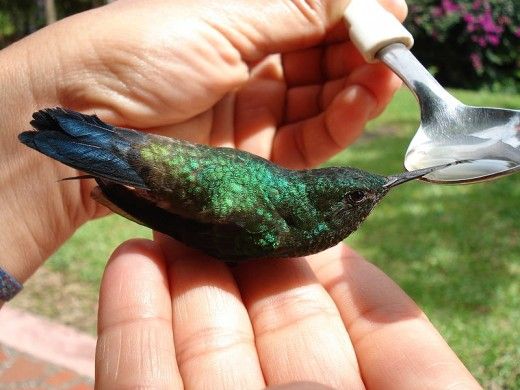 (Photograph courtesy of 'The Hummingbird Rescue Lady of Las Vegas'. ) (Photograph courtesy of 'The Hummingbird Rescue Lady of Las Vegas'. ) "Confronting our feelings and giving them appropriate expression always takes strength, not weakness. It takes strength to acknowledge our anger, and sometimes more strength yet to curb the aggressive urges anger may bring and to channel them into nonviolent outlets. It takes strength to face our sadness and to grieve and to let our grief and our anger flow in tears when they need to. It takes strength to talk about our feelings and to reach out for help and comfort when we need it." (From ‘The World According to Mister Rogers') I have a new hero, neighbours, and his name is Fred Rogers. Fred passed away in 2003 at the age of 75, after a lifetime dedicated to teaching children how to deal with ‘big feelings’ and modelling empathy and compassion through his public television show Mister Rogers Neighbourhood. He was, by all accounts, one of the kindest people who has lived during our lifetime and a long-time vegetarian who didn’t want to eat 'anything that had a mother’. Look him up if you are unfamiliar- he may inspire you, too! As a consequence of all my ‘Mister Rogers’ research, in addition to a little contemplation and soul-searching, I’ve been on a bit of a ‘kindness kick’ for the last month or so-- and my goodness, it feels wonderful! But I must acknowledge that none of us feel like sunshine and rainbows all the time- we don’t always feel like we could just give the whole world a great big hug. Sometimes it is very difficult to be kind. This world is awash with cruelty, sadness, exploitation- of both humans and animals. And our first instinct often calls for retribution--not empathy--when we read or hear about such cases. We want that ‘eye for an eye’. To get even. To see someone treated in the same shabby fashion they have treated their innocent victims. We feel angry- justifiably. Just reading over the 2018 RNZSPCA List of Shame is enough to make one reach for both tissues for tears and a notebook to plot revenge against the perpetrators. For vegans, the sadness and anger increase exponentially as we also consider the victims who are --often legally-- exploited for their milk, their flesh, their bones and sinew. Their fur, scales, hide, horns and shells. Their feathers, pearls and silk. Billions upon billions of sentient creatures caught in a cycle of exploitation and death, and all for human consumption- 56 billion land animals each year. A heart-breaking, overwhelming amount of suffering. But should we hate people for being part of that cycle- for being cogs in the wheel? Does adding more hateful voices to the chorus of suffering help the animal victims? Will putting up more walls between our ‘vegan tribe’ and the non-vegans who we may be tempted to judge create a more just world? It is natural to be angry about the injustice. But perhaps we can channel our anger in to positive means- to transform it into radical kindness. A recent news article reported that an animal rights activist in France was given a suspended sentence after stating on Facebook that she felt no sympathy for a butcher who was killed in the Trèbes terrorist attack. As an animal activist and vegan, I agree with the lawyer on behalf of the deceased butcher’s family who said: “I can understand that you can love and defend animals, but not to the point where you hate humans”. All life is precious and has value- regardless of whether we may agree with the employment choice of the butcher. Can we not also grieve as we have lost a human brother, and show compassion for his family and loved ones? I find myself at a place now when even as I feel deep anger about harm caused to our animal friends, I cannot see the purpose of misanthropy in the vegan movement. We need to change hearts and minds, and it won’t be done through hate. Sometimes our “best” in terms of showing compassion- especially in cases of grievous violence- is to refrain from wishing violence on the perpetrator. And hope they can be rehabilitated- and if not, never again put a position where innocent victims may suffer. After all, most of we vegans started out non-vegan - we ate the results of violence, we may have participated in activities such as hunting, fishing, or other ‘normal things’ which often result in unnecessary death and suffering for the animal victim. Our work is urgent, but that doesn’t mean we should forget to be compassionate- even to those whose actions cause harm. Modelling empathy, the same deep empathy we feel for non-human animals, is vital in order to lessen all suffering in this world. The best we can do is try to be kind. Be kind by leaving animals off our plates. Be kind to those we interact with, both in person and online. Disagree over ideas, but try and refrain from personal attacks or sweeping generalisations. I understand how frustrating that can be at times. There are just so many friendly people willing to eat so much bacon to make up for what we vegans do not, right?! Kindness isn’t capitulation or weakness. It is the greatest strength at our disposal. We can try to channel our sense of justice for all sentient beings into how we treat everyone we meet- especially those who do not share the vegan ethic (Yet!) And we as activists should try to be kind to ourselves, too. Working to educate others about veganism through protest, fundraising, chatting with friends and neighbours can get tiring in a world that by and large chooses omnivorousness at the expense of personal and planetary health. If you are feeling frustrated, take some time out to work through your feelings, and chat with someone understanding if you are able to. And feel free to get in touch with DOVeS folks too- we’ll be happy to help. About the author: Moni is a local vegan activist, wife, and mama. She is passionate about justice, fairness and cooking vegan feasts for her whanau and friends. |
Archives
November 2021
Categories |
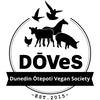
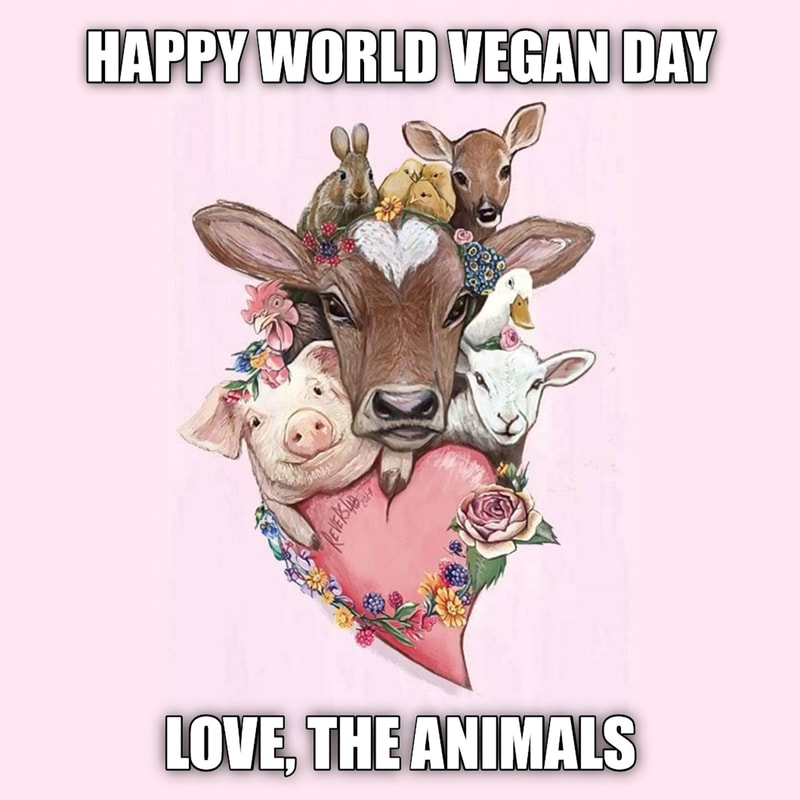
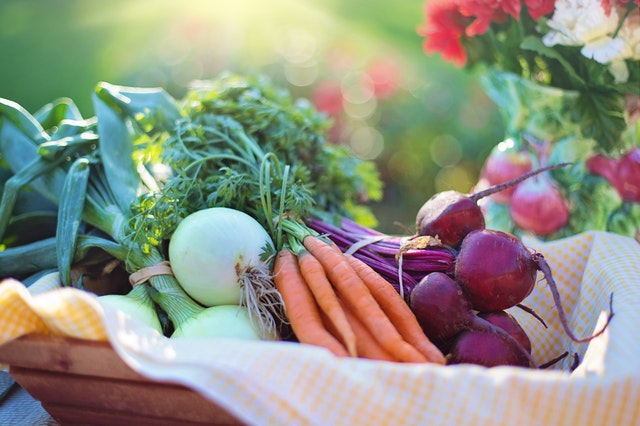
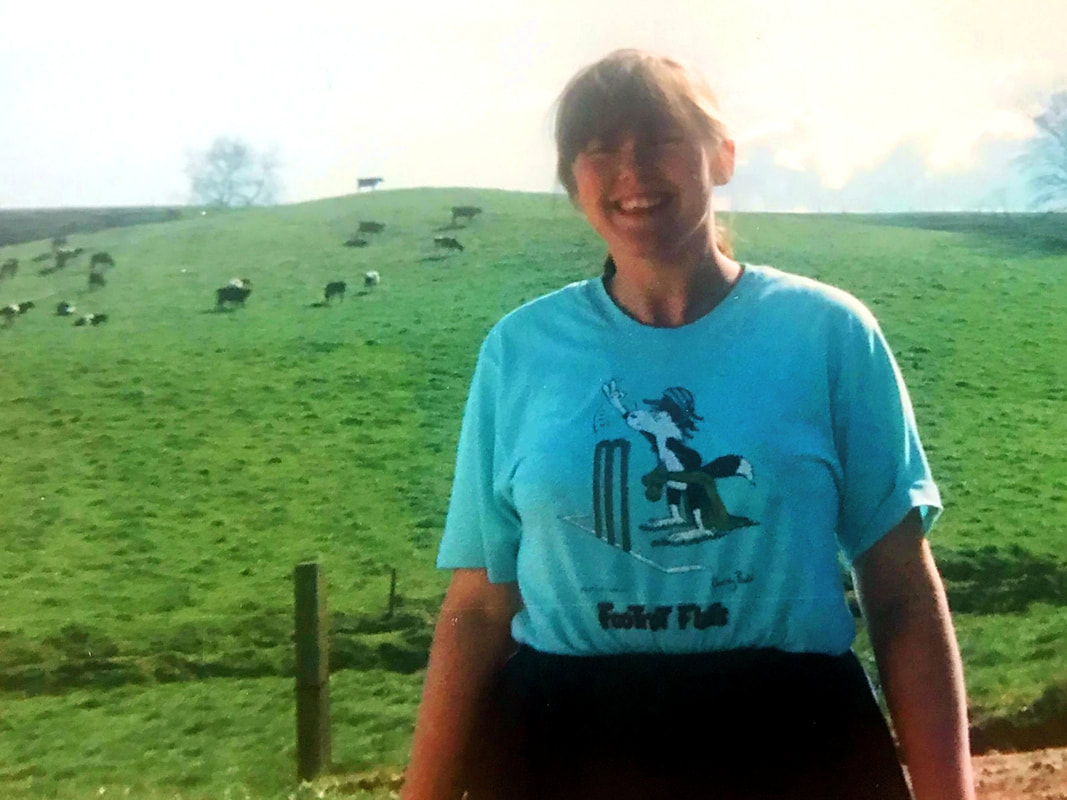
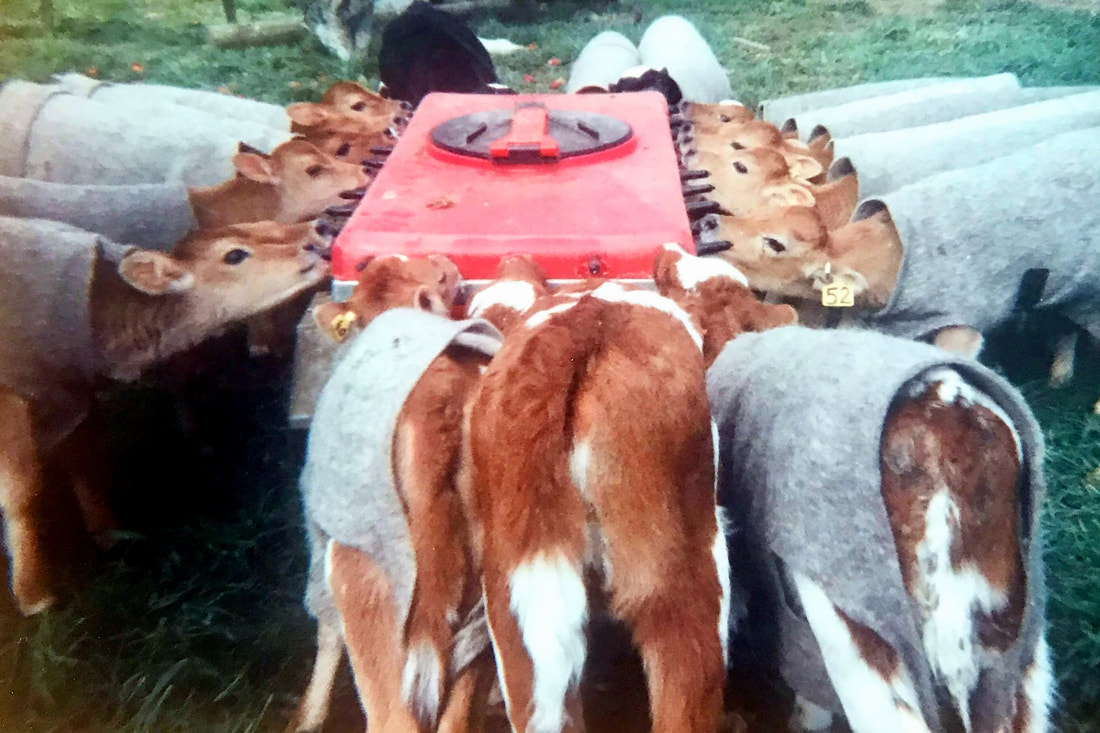
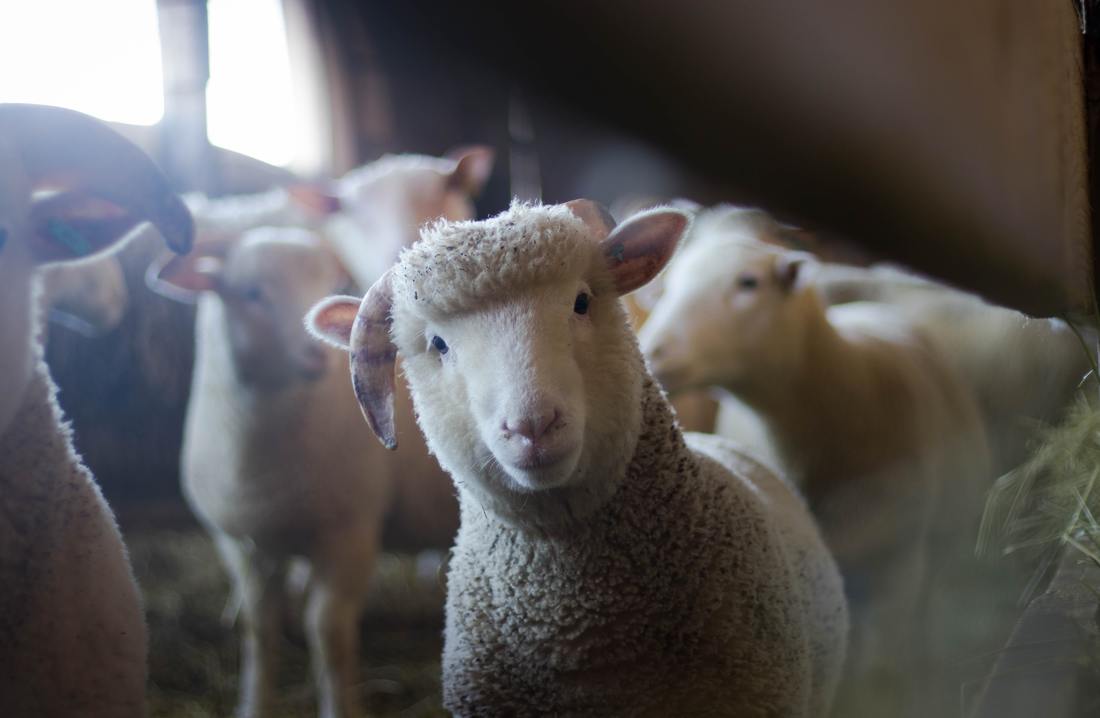
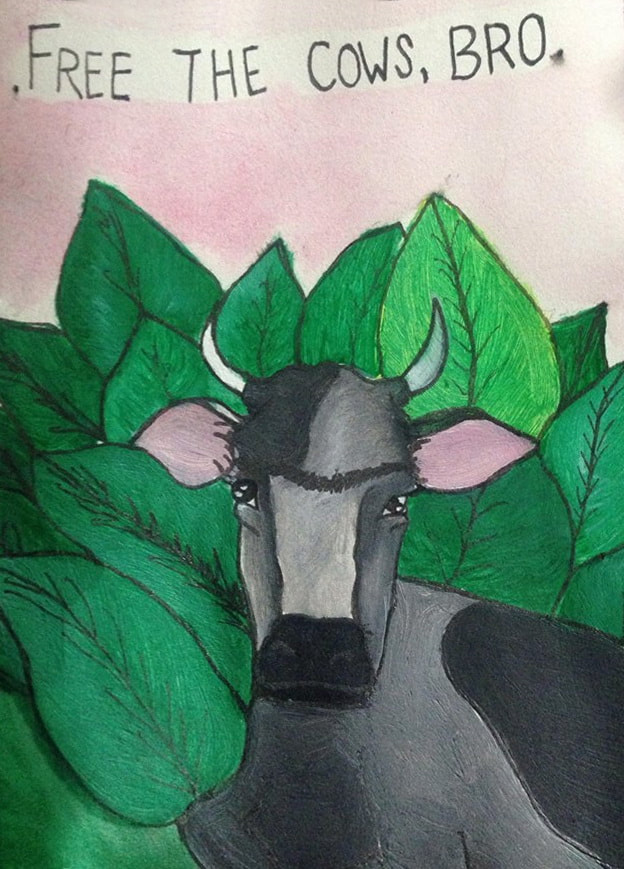
 RSS Feed
RSS Feed
